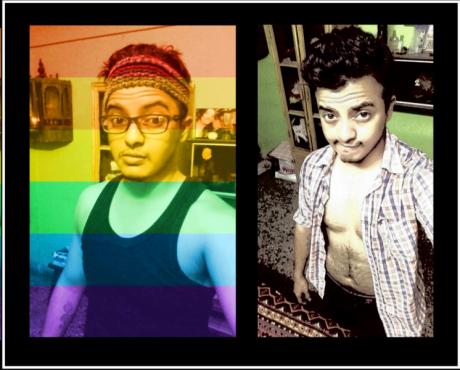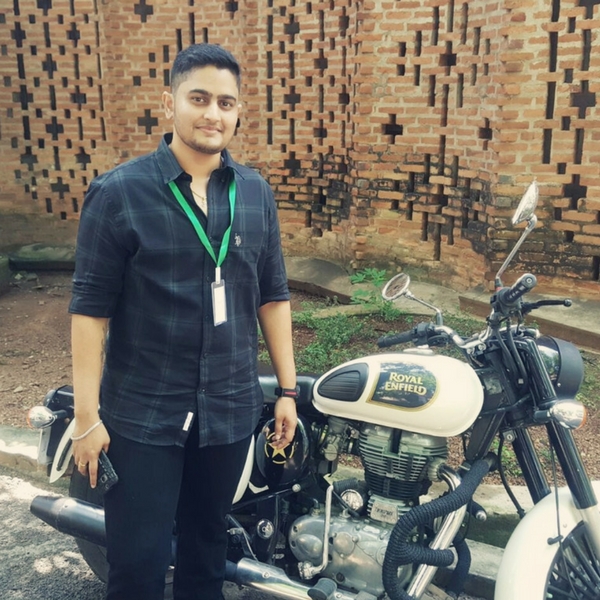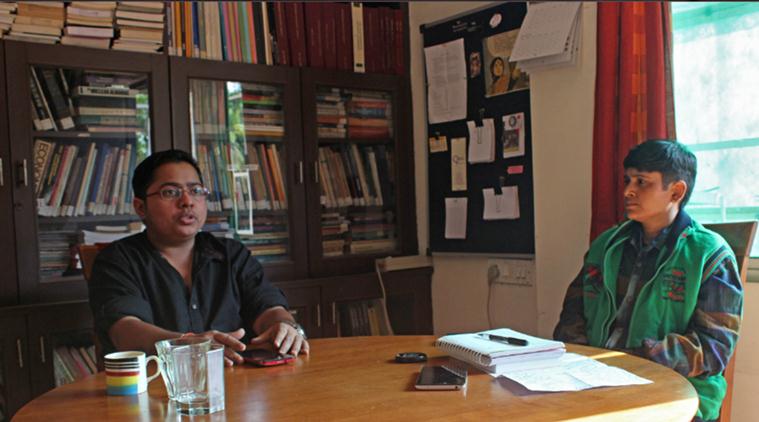“Transmen are a highly invisibilised and marginalised gender minority. Most people are not even aware that such a group exists. And sadly, even most members of the hijra community do not accept them. I feel the plight of transmen is, in many ways, worse than male to female transpersons.” A. Revathi, A Life in Trans Activism
Recently, a beauty pageant held at New Delhi exclusively for transwomen marks a genuine attempt at inclusiveness and representation of transpeople in India. After the Transgender Persons Protection of Rights Bill which follows the Supreme Court’s NALSA judgement of 2014, there have been some remarkable attempts to de-stigmatise the visibility of transwomen in popular media. These include the Vicks advertisement which featured trans activist Gauri Sawant; magazines like Vanitha having a transwoman on their covers and a transwoman being cast in a leading role in a Malayalam movie. However, the visibility of transmen (people who are biologically born female but indentify as male) remains largely marginal, and there have been little to no attempts at making them a part of the popular imagination. Communities of transwomen in India, despite being oppressed, have made their way for self-organisation; and have done so partly because of already existing social groups like hijras, kinnars, sakhis, jogappas, aradhis, etc. These groups can also act as support systems and ensure that there remains some form of awareness among the public. However, transmen in India have not traditionally had platforms to assert their identities. It is precisely for this reason that attempts at inclusion for transpeople often remain restricted to trans women. When Kochi Metro employed twenty three transpeople, it was largely transwomen and gender non-confirming people; and no special scheme was extended to transmen. As an identity, transman remains largely unheard of in India.
Kabeer Sharma, who has transitioned into a man says, “I didn’t know anything about the trans community till I was 25. I thought I was the only one with this conflict…” He says that more than often, being a transman is dismissed as being a tomboy, or merely going through an androgynous phase. A possible reason for not taking transmen seriously is that society degrades femininity and mourns the loss of masculinity. When a biologically born man begins to identify as being feminine, the societal gaze becomes more potent and ridicules them for not living up to the toxic norms of masculinity. Biologically born women who choose to express themselves as men are also mocked and discriminated against, but their gender expressions are not taken seriously because there is no stigma of emasculation attached to it. Therapist for transmen, Dr. Lavinda Nanda says, “The social construct and acceptance in our country is different when it comes to female-to-male transitions. There are some societal classes in India which accept their decision in the beginning and classify it as tomboyish behavior. Problem begins in situations like when the individuals want to transition, have surgeries or want to have a partner etc.”

Siddhant More from Mumbai, who transitioned in May 2012, laments the fact that Amir Khan’s Satyamev Jayate, in their episode about LGBT rights in India, did not invite any transmen. He says, “That show broke ground with millions of Indians who for the first time saw that members of the LGBTI community were just normal human beings looking for acceptance. It's unfortunate they could not invite a transman citing time-constraints. They could have had a transwoman and a transman each instead of two transwomen. It could’ve made a difference.”
While the NALSA judgement ensures equal rights for transpeople in all sectors, the Transgender Protection Bill of 2016 dilutes the possibility of self-identification. Besides giving misleading definitions of who a transgender is, and loosely mentioning the term “trans men” only once, according to the bill, surgery is not required as a proof of identification of the gender. However, a District Screening Committee needs to authorise if the concerned individual is trans or not with no official ways of challenging the judgement of the committee. In several instances, transmen have been discriminated against because they could not provide documents for a sex reassignment surgery. Rajat Shalke, who had difficulties in officially altering his name and gender says, “I wanted to use the NALSA judgement, and I even applied on the basis of that before undertaking surgery. But they did not approve my case, and I had to fight a lot with the Gazette.” Kabeer says that his friend was denied a change in his gender because the officer insisted that the judgement was only for “members of the hijra community and for those who have the surgery.” Surgery for trans men, which include procedures like mastectomy and phalloplasty, remains extremely expensive in India with very few hospitals having the infrastructure to do them. Some transmen also express fear of a peculiar nature. They say that coming out as a man in India opens up the possibility of certain property rights in Indian households. This leads to further vilification, especially if the transman happens to already have brothers.
On a positive note, there are some LGBT forums dedicated to bring into notice the struggles of transmen. However, when we speak of trans inclusiveness, we have to ensure that the stories of transmen are not generalised under the broad umbrella of being a transgender, and that they are not further pushed into obscurity.

Vihaan Peethambar in his coming out monologue says:
“My heart has broken repeatedly as I’ve read and heard stories about trans-people pushed so far to their limits by their families, peers and society – so utterly broken by the process of coming out that they took their own lives. To be honest, I have felt that way several times. As most things with the LGBTIQ community, things are slow but getting better, every day, month, and year at differing paces around the country and world. On that front, I will continue to be patient and I hope that in coming out, I can do my own small part in helping those who are trapped in their own battles in the ongoing struggle for trans-recognition and rights.”
By Asmita Kundu:
Institutional Apathy to Mental Health: The Death of Ghanshyam Das
Marital Rape in India: When Law Remains Silent to Sexual Violence
JNU Student Testimonials: “I am proud that we can hold a discussion on Kashmir in JNU”





